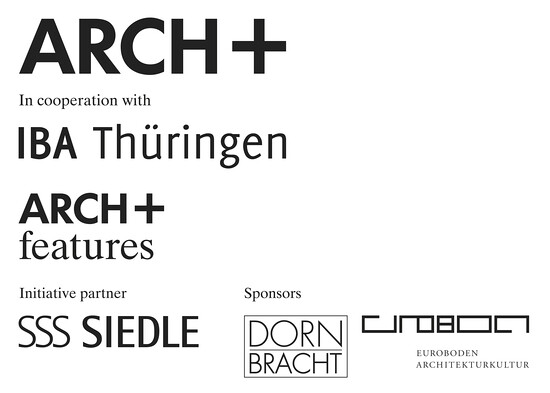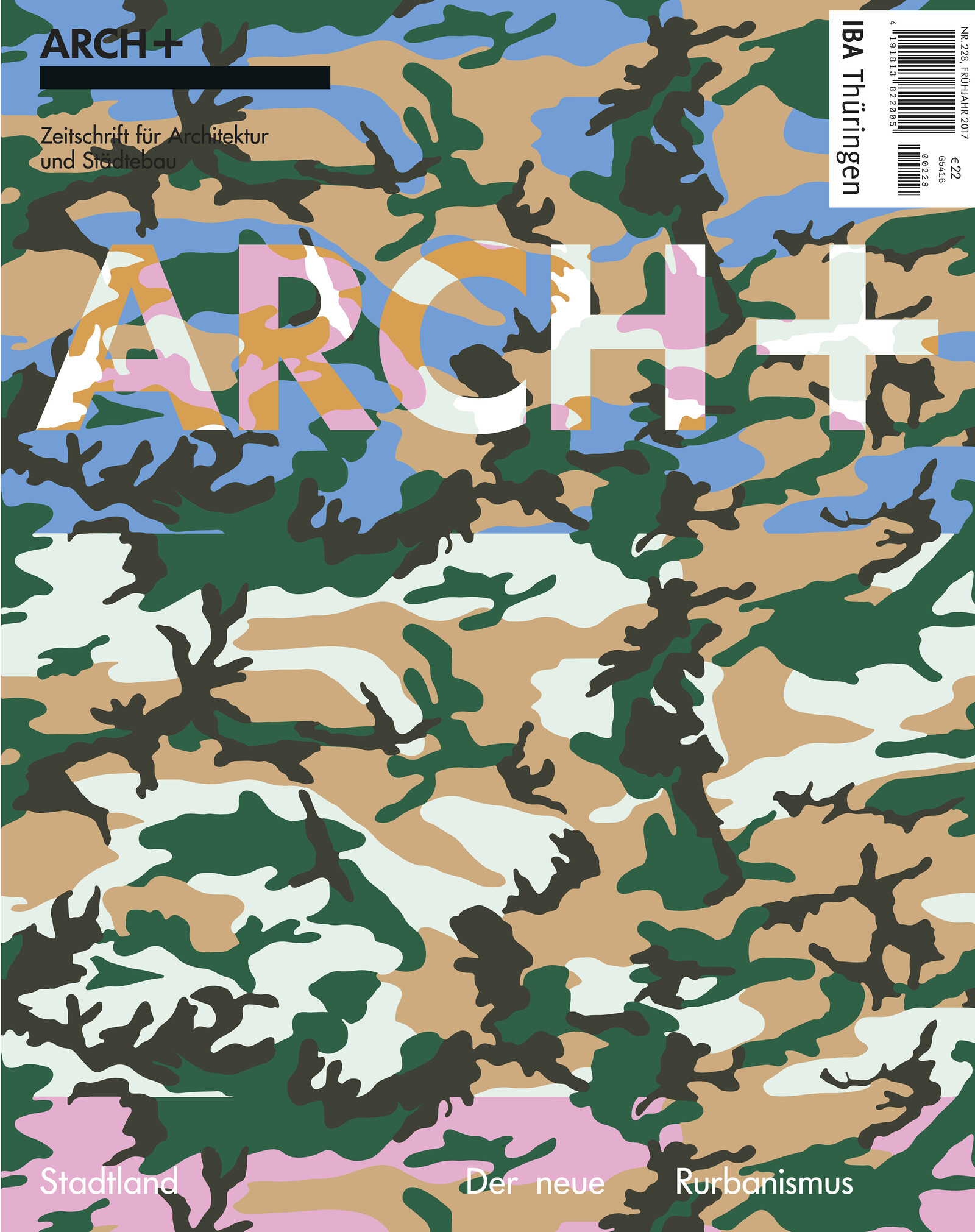Spring 2017
silent green Kulturquartier, Gerichtstrasse 35, 13347 Berlin
The new issue of ARCH+ Journal for Architecture and Urbanism, entitled “Stadtland—The New Rurbanism,” investigates the dialectical relationship between city and countryside. (The word “Stadtland” is a portmanteau of the German words for city and countryside originally coined by Martin Wagner in the 1930s.) This is a relationship that has always been ideologically contested. Yet with the steady advance of urbanization, the antithetical distinctions between city and countryside, center and periphery, culture and nature have increasingly dissolved. Simultaneously, the romanticization of rural space as a site of the natural and authentic, as a victim of industrialization and urbanization, is coming into question. The countryside is becoming an ambivalent actor—in certain respects a culprit, in others a forerunner.
According to philosopher Armen Avanessian, to whom this issue’s special feature is dedicated, “Today, city and country(side) must by necessity be thought as technological and computational.” He argues that cities today should be viewed more from the perspective of the countryside, and that this countryside is as far from “natural” as the rest of nature.
Under the spatial regime of Stadtland, there is no “return to the land”—and above all no “return to nature.” Indeed, more than anywhere else, it’s the countryside that attests to the looming technological revolutions that challenge our ways of life and even our very humanity.
Avanessian continues: “In the countryside of the future, which has already begun, we also find the server farms that have recently prompted Rem Koolhaas to think about a ‘posthuman countryside’ and an ‘architecture without human occupancy.’ Beyond questions concerning the aesthetics of posthuman architecture, I am interested in the effects server farms have on the countryside or, in more precise and metonymic rather than metaphorical terms: I am interested in how a new paradigm of computation does not simply change living and thinking in our software society but affects the ‘smart’ cities and countrysides themselves where we live and work.
“The task—for architecture as for the theory of architecture, for politics as for philosophy—is to live up to the challenge of this spatially and temporally complex social landscape where the human can no longer claim epistemic primacy over against computers or algorithms. For that reason and because algorithms have no present—neither an aesthetic nor any other kind of presence—it is nostalgic and regressive to posit the living present of human beings, their aisthetic presence and aesthetic concerns, as the exclusive criterion for thinking architecturally about city and countryside.”
Read the English translation of Avanessian’s essay “Whole Cities and Divisible Countries, or Speculative Thoughts on a New Mereo(to)politics for the Twenty-First Century” here.
The issue is published in German, and includes contributions from Armen Avanessian, BeL Sozietät für Architektur, Pierre Bélanger, Giorgio Ciucci, Marta Doehler-Behzadi, Kerstin Faber, Ulrike Guérot, Peter Haimerl, Thomas Kröger, Achim Menges, Philipp Oswalt, Rural Urban Framework, Christian Schmid, Manfred Speidel, Issei Suma, Stephan Trüby, Zhang Ke, Juli Zeh, among others.
ARCH+ features 60: Stadtland
On April 27, 2017, coinciding with the publication of the ARCH+ issue “Stadtland – Der neue Rurbanismus”, as part of the ARCH+ Features series, the event “ARCH+ Features 60: Stadtland” will be held in Berlin’s silent green Kulturquartier. With architects Peter Haimerl, Thomas Kröger, and Marta Doehler-Behzadi (Managing Director of IBA Thüringen), moderated by Kerstin Faber (IBA Thüringen) and Anh-Linh Ngo (Editor, ARCH+).
ARCH+ is Germany’s leading publication for discourse in the fields of architecture, urbanism, and related disciplines. Founded in the wake of the student protests of 1967, ARCH+ continues to situate the built environment within its social context. Quarterly issues examine a diverse range of topics to decipher the cultural and political conditions that produce space. In print and online, through projects and events, ARCH+ functions as an independent platform for critique. ARCH+ is edited by Nikolaus Kuhnert, Anh-Linh Ngo, and Christian Hiller. Art direction by Mike Meiré.



